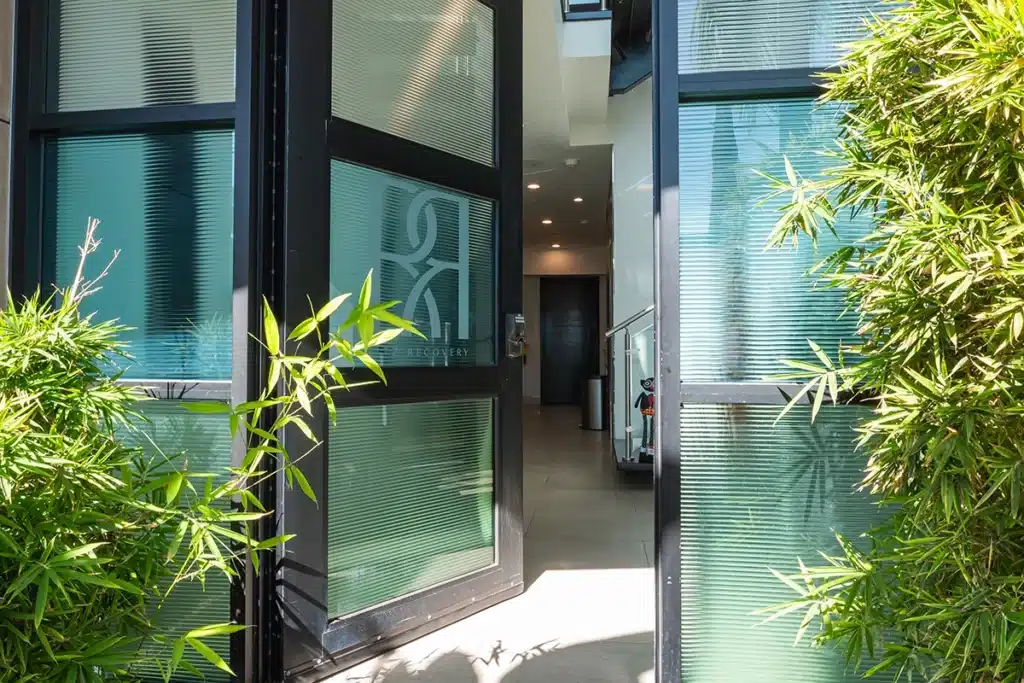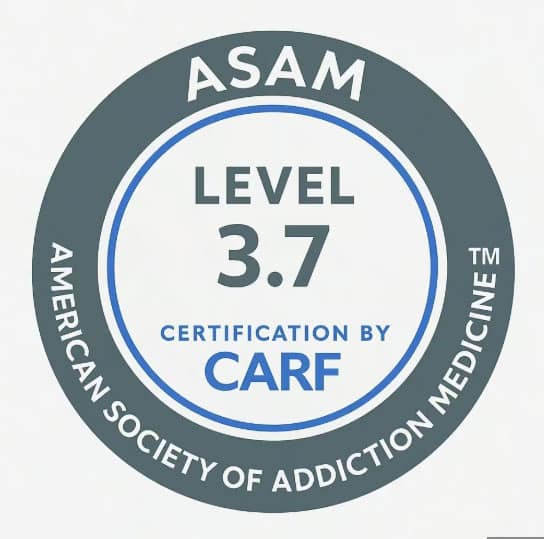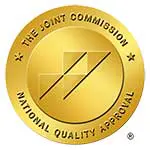Speak to an Admissions Specialist Today!
Call us at (888)-680-1356 or fill out a confidential form.
On average, how long is the average stay in drug rehab in Los Angeles ranges from 30 to 90 days. However, the exact duration can vary based on several factors, including the severity of the addiction, type of treatment, and individual needs. This article breaks down these factors and provides insights into what to expect during your rehab journey in Los Angeles.
Key Takeaways
- The average duration of drug rehab in Los Angeles typically ranges from 30 to 90 days, influenced by addiction severity, co-occurring disorders, and insurance coverage.
- There are significant differences between short-term (28-30 days) and long-term (60-90 days or more) rehab programs, with longer programs generally leading to better recovery outcomes.
- A personalized treatment plan and ongoing aftercare support are critical for effective addiction recovery, ensuring that each individual’s unique needs are addressed and helping them build coping strategies to maintain sobriety in the long run.
Introduction to Rehab in Los Angeles
Los Angeles is renowned for its diverse and comprehensive addiction treatment landscape, offering hope and healing for those struggling with drug and alcohol addiction. Whether you’re seeking outpatient treatment for flexibility or the immersive support of inpatient rehab, there are numerous treatment centers throughout the city designed to meet a wide range of needs. Inpatient treatment centers in Los Angeles provide a structured, supportive environment where individuals can focus on recovery, benefit from medically supervised detox, and participate in group therapy and individualized treatment plans tailored to their unique circumstances.
For those who require a less intensive approach, outpatient rehab programs offer the ability to receive addiction treatment while maintaining work, school, or family commitments. These programs are ideal for individuals with strong support systems at home or those transitioning from inpatient rehab. Both inpatient and outpatient rehab programs in Los Angeles address not only substance abuse but also co-occurring mental health disorders, ensuring a holistic approach to recovery. By understanding the different types of rehab available in Los Angeles, individuals and families can make informed decisions and choose the path that best supports their journey to overcoming alcohol addiction and substance abuse.
Understanding the Duration of Drug Rehab Stays in Los Angeles

Understanding the complexities of drug rehab can be challenging, particularly when considering the duration of the process. The length of stay in drug rehab programs in Los Angeles varies widely due to numerous factors, and knowing these can help individuals and their families make informed decisions.
Early intervention programs are available for individuals at risk of developing substance abuse disorder, helping to prevent the condition from fully manifesting.
Personal goals, health issues, and specific treatment needs are key factors in determining the duration of a stay in drug rehab. For instance, someone with a severe drug and alcohol addiction or drug or alcohol addiction might require a longer stay compared to someone with a milder dependency. Additionally, the presence of co-occurring mental health disorders can necessitate an extended duration to address both issues comprehensively.
Insurance coverage can significantly impact the length of stay in inpatient drug rehab programs. Different insurance plans offer varying levels of coverage, which can help manage the overall expenses associated with extended treatments. Transitioning between different levels of care, such as inpatient to outpatient programs, can also affect the overall duration of rehab.
Knowing the duration of drug rehab stays helps individuals seeking addiction treatment set realistic expectations and prepares them for the journey ahead. Informed individuals can better navigate their recovery path and make choices that align with their long-term sobriety goals.
Factors Influencing Rehab Stay
The severity of the addiction heavily influences the length of a rehab stay. Those with more severe addictions typically require longer treatment durations for a successful recovery. Co-occurring disorders like anxiety, depression, or bipolar disorder often accompany addiction and require a tailored, extended treatment approach. Programs that treat both addiction and these mental health conditions can impact the necessary duration for effective rehabilitation.
Previous treatment experiences and relapses are critical factors. Those who have undergone treatment methods before and experienced relapses might need longer stays in residential treatment facilities to address the root causes of their alcohol addiction and develop stronger coping mechanisms for overcoming addiction.
Medical conditions and their complications can further increase the length of rehab stays, as additional medical care is required. Collectively, these factors—addiction severity, co-occurring disorders, treatment history, and medical considerations—play a significant role in determining the overall duration of rehab programs. Addressing these aspects comprehensively allows treatment centers to create a more effective and personalized rehabilitation experience.
Common Lengths of Stay
Rehab programs in Los Angeles offer various lengths of stay to cater to different needs. Options commonly include 30-day, 60-day, and 90-day programs. These durations offer a structured framework for the necessary treatment and support for recovery.
Short-term rehab programs usually last around 20 to 30 days. These programs provide:
- Intensive treatment and support
- Behavioral therapy
- Counseling
- Psychoeducation They offer a secure environment for patients to focus on healing without distractions.
Longer programs, such as 60-day ones, provide more time to build a solid support system and develop coping strategies for maintaining sobriety. These programs often combine residential or outpatient care, depending on individual needs, including alcohol treatment. Outpatient drug rehab typically offers more flexibility and allows individuals to live at home while attending scheduled treatment sessions, whereas residential options require patients to stay at the facility for the duration of the program.
Most 90-day rehab programs last about three months. These extended durations allow for a deeper exploration of the underlying causes of addiction and more comprehensive treatment services. Residential treatment programs, especially those lasting 90 days or more, are considered highly effective for long-term recovery. In Los Angeles, the average drug rehabilitation stay ranges from 30 to 90 days for residential programs, providing ample time for successful recovery.
Typical Duration of Medical Detoxification

Medical detoxification is often the first step in rehab and is crucial for safely managing withdrawal symptoms. A detox program is typically the initial phase of structured addiction treatment, providing medically supervised care to ensure safety and comfort. The typical stay for medical detox ranges from 5 to 10 days, depending on various factors, including:
- The type of substance used
- Frequency of use
- Age
- The presence of co-occurring mental health issues.
Medically supervised detox ensures that withdrawal symptoms are managed safely and effectively for those with severe dependencies. Detox programs are especially important for individuals dependent on prescription drugs, as these substances require careful medical oversight and specialized treatment plans. Patients may experience a range of withdrawal symptoms and cravings during medically assisted detox, making this phase challenging but necessary for recovery.
Medical alcohol detox cleanses the body of harmful substances and prepares individuals for the subsequent stages of rehab. This critical initial phase sets the foundation for long-term recovery by stabilizing the patient and reducing immediate relapse risk. Additionally, drug detox is an essential step for those seeking to overcome substance use disorders.
Knowing the typical duration and importance of medical detox helps individuals and their families prepare for this initial step in rehab. Informed individuals can better manage expectations and support their loved ones through this challenging phase.
Managing Withdrawal Symptoms
Withdrawal symptoms are often one of the most challenging hurdles in the early stages of addiction recovery. In Los Angeles, drug rehab centers recognize the importance of managing these symptoms safely and effectively. Medically supervised detox programs are designed to help individuals navigate withdrawal with round-the-clock medical care, ensuring a safer and more comfortable experience. Inpatient drug rehab facilities provide continuous monitoring and support, which is especially crucial for those experiencing severe withdrawal symptoms.
Medication assisted treatment (MAT) is frequently utilized to ease withdrawal symptoms and reduce cravings, making the detox process more manageable. This approach, combined with a comprehensive treatment program that includes therapy and support groups, helps individuals overcome addiction and build a foundation for long-term recovery. Detox programs in Los Angeles are tailored to each person’s needs, offering medical detox and emotional support to guide them through this critical phase. With the right care and resources, individuals can successfully manage withdrawal symptoms and take the first step toward lasting sobriety.
Short-Term vs Long-Term Rehab Programs

Choosing between short-term and long-term rehab programs is a crucial decision in the recovery journey. Short-term rehab typically:
- Lasts around 28 to 30 days
- Offers hands-on treatment and close monitoring
- Is accessible
- Often has lower costs
- Is covered by various insurance plans
However, short-term rehab might not provide enough time for individuals with severe drug addiction to fully recover. Long-term rehab programs typically last from 60 to 90 days and allow for a deeper exploration of the underlying causes of addiction. These programs often include more comprehensive services like extensive therapy and aftercare support. Drug and alcohol rehab facilities provide comprehensive, holistic care with personalized treatment plans, high-end amenities, and a focus on safety and comfort.
Patients in long-term rehab have higher chances of maintaining sobriety compared to those in shorter programs. The extended duration allows individuals to develop and practice coping strategies, build a strong support system, and address co-occurring mental health disorders. Residential treatment centers are especially effective for addiction treatment, with higher success rates and structured environments that support long-term recovery.
Long-term rehab programs can last from 90 days up to two years, depending on individual needs and progress. These programs aim to build a solid foundation for lasting sobriety, ensuring individuals are well-prepared to face life after rehab.
Types of Therapy in Rehab
Behavioral Therapy
Behavioral therapy is a cornerstone of effective addiction treatment in Los Angeles, playing a vital role in both inpatient rehab and outpatient rehab programs. This therapeutic approach helps individuals recognize and change the negative thought patterns and behaviors that contribute to substance use. Two of the most widely used forms of behavioral therapy in rehab are cognitive-behavioral therapy (CBT) and dialectical behavior therapy (DBT).
CBT focuses on helping individuals identify triggers and develop healthier coping strategies, while DBT emphasizes mindfulness, emotional regulation, and stress management. Inpatient rehab programs in Los Angeles often integrate these therapies into their treatment plans, providing a structured environment where clients can practice new skills and prevent relapse. By participating in behavioral therapy, individuals gain the tools and confidence needed to maintain sobriety and navigate the challenges of recovery. These evidence-based therapies are essential components of rehab programs, supporting long-term healing and personal growth.
The Role of Personalized Treatment Plans
Personalized treatment plans are crucial for effective addiction treatment. At Ritz Recovery, detox programs are tailored to each client’s unique needs, addressing their specific circumstances. A patient’s support system is essential for crafting effective addiction treatment plans.
Therapies that resonate with individuals enhance their commitment to recovery. Some clients may benefit from individual therapy sessions, while others might find group therapy or dialectical behavior therapy more effective. The goal is to create a treatment plan that aligns with individual preferences and needs, increasing the likelihood of successful outcomes.
Long-term rehabilitation allows individuals to develop and practice coping strategies over an extended period, reducing relapse risk. Clients at Ritz Recovery have access to various therapies, including individual and group sessions, which can be adjusted based on their progress and feedback.
Treatment length should match the client’s needs, as addiction is not one-size-fits-all. Key considerations include:
- Personal treatment goals may lead some clients to choose extended care for relapse prevention.
- Offering personalized timelines and a full continuum of care.
- Ritz Recovery adapts each client’s rehabilitation journey to their specific needs and progress.
An intensive outpatient program can also be an important step after inpatient care, providing ongoing therapy and medical support while clients reintegrate into daily life. This flexible option helps maintain treatment progress and reduces the risk of relapse, allowing clients to live at home while participating in structured outpatient care.
Family and Support in Recovery
Family Therapy
Family therapy is a powerful element of addiction treatment in Los Angeles, recognizing that recovery is not just an individual journey but one that involves the entire family. Inpatient rehab programs and many outpatient programs in the city include family therapy sessions as part of their comprehensive rehab programs. These sessions are designed to repair relationships, improve communication, and foster understanding among family members affected by addiction.
Through family therapy, loved ones gain insight into the recovery process and learn how to provide effective support, which is crucial for successful addiction treatment and long-term sobriety. A strong support system can make a significant difference in preventing relapse and promoting lasting recovery. Family therapy also helps address any underlying issues within the family dynamic that may contribute to substance use, creating a healthier environment for everyone involved. Whether in an inpatient rehab setting or as part of outpatient programs, family therapy is an invaluable resource for those seeking to rebuild trust and strengthen their support network during rehab in Los Angeles.
Impact of Insurance Coverage on Rehab Duration
Insurance coverage significantly impacts the duration of stay in rehab programs. Many health insurance coverage plans cover part or all of rehab costs, making treatment more accessible. However, longer stays generally mean higher overall expenses due to the increased costs of extended treatments.
Choosing a rehab center that accepts your health insurance can help manage expenses and ensure you receive necessary treatment without financial strain. Patients should familiarize themselves with their insurance policies to understand coverage limitations and preauthorization requirements.
The Affordable Care Act mandates that addiction treatment services must be included as essential health benefits, ensuring insurance coverage for addiction treatments matches that of other medical conditions. This requirement makes rehab more accessible and affordable for many individuals.
Variability in Medicaid coverage from state to state can create disparities in access to rehab services. In California, insurance mandates may affect how long insurance will cover residential treatment, so understanding these specifics is important when planning for rehab.
Benefits of Extended Rehab Programs

Extended rehab programs offer numerous benefits, including acclimation to the treatment process, the ability to create long-term goals, and living in a supportive environment. These programs allow individuals to gain a deeper understanding of their addictions and triggers through guided therapy. A residential treatment center provides a comfortable, structured setting with around-the-clock care and intensive therapy, supporting individuals throughout their recovery journey.
Research from the National Institute on Drug Abuse indicates that longer stays generally lead to better recovery outcomes. The minimum recommended duration for treatment to support long-term recovery is 90 days. Longer treatment durations provide more time to develop and practice coping strategies, build a strong support system, and address co-occurring mental health disorders.
Long-term alcohol rehab aims to build a solid foundation for lasting sobriety. Spending more time in a structured and supportive environment helps individuals better prepare for post-rehab challenges.
In Los Angeles, the high demand for executive and luxury rehabilitation often results in longer, customized stays. Facilities like Ritz Recovery, a treatment facility, offer personalized timelines, private rooms, and a full continuum of care, making extended rehab a viable and beneficial option.
Outpatient vs Inpatient Rehab: Duration Differences
Choosing between outpatient and inpatient rehab programs can significantly impact the duration and structure of the recovery journey. Inpatient treatment programs:
- Can last from 30 days to six months
- Provide a comprehensive and structured environment for severe addiction
- Offer intensive therapy
- Include medical supervision
- Provide a supportive community that enhances the chances of successful recovery
An inpatient drug rehab facility is a residential setting where individuals receive comprehensive, 24/7 care, including therapy, support, and holistic approaches, ensuring a safe and supportive environment for recovery.
In contrast, outpatient rehab programs can extend from three months to over a year, depending on the severity of the substance use disorder and individual progress. Outpatient treatment allows individuals to continue with their daily responsibilities while receiving Substance Abuse treatment, making it a flexible option for those who cannot commit to an extended stay at an inpatient facility.
Intensive inpatient rehab is designed to provide a thorough and immersive treatment experience at an inpatient drug rehab center and an inpatient treatment center. This type of inpatient program and inpatient programs is particularly beneficial for individuals with severe or long-term addiction issues, as it offers a higher level of inpatient care and support. The structured environment helps patients focus entirely on their recovery without the distractions and triggers of everyday life, making it an effective inpatient rehab program.
Outpatient programs, on the other hand, offer flexibility and the opportunity to apply coping strategies in real-life situations. These outpatient program can range from 30 days to six months or more, allowing for a gradual transition back into daily life while still receiving support and treatment. By comparing the benefits and durations of both options, individuals can make informed decisions that best suit their needs and circumstances.
Aftercare and Ongoing Support
Aftercare and ongoing support are crucial components of the broader recovery timeline. The risk of relapse is highest in the initial months following rehab, making continued support essential for maintaining sobriety. Various aftercare options are available, including outpatient therapy, 12-Step programs, and sober living environments, all of which provide crucial support in recovery efforts.
Extended rehab programs foster relationship-building among residents, creating a supportive community that extends beyond the initial treatment phase. Support from family and friends is also vital for sustaining recovery during the aftercare phase. These relationships can provide the encouragement and accountability needed to stay on track.
Ongoing support can include group therapy sessions, individual counseling, and participation in support groups. These resources help individuals navigate the challenges of post-rehab life and prevent relapse by providing continuous guidance and support in their addiction recovery. The goal is to ensure that individuals have access to the tools and resources they need to maintain their sobriety long-term.
By incorporating aftercare and ongoing support into the recovery plan, individuals can build a solid foundation for lasting sobriety. This comprehensive approach addresses the various challenges that may arise after leaving rehab, ensuring that individuals are well-equipped to handle them.
Choosing the Right Rehab Center in Los Angeles

Selecting the right drug rehab center in Los Angeles is a critical step in the recovery journey. When considering alcohol rehab in Los, it is essential to choose a facility that offers comprehensive, evidence-based recovery programs tailored to individual needs. It is beneficial to choose a rehab center recognized for using evidence-based treatments and having the appropriate licenses. This ensures that the facility meets high standards of care and provides effective treatment options.
Many facilities in Los Angeles offer specialized programs tailored for co-occurring mental health disorder, making them ideal for individuals with dual diagnoses. It’s important to consider the types of therapies offered, as some facilities provide alternative therapies like EMDR, which can be beneficial for certain individuals.
Before committing to a rehab center, verify if the facility accepts your insurance to avoid unexpected expenses during treatment. Touring potential rehab facilities can also help you gauge the environment and staff, ensuring that you feel comfortable and supported in your recovery journey.
Los Angeles is home to a wide range of rehabilitation options that vary in quality and length of care. By carefully considering these factors, you can choose a rehab center or rehab centers that best fits your needs and provides the highest chance of successful recovery.
Why Ritz Recovery Is a Top Choice for Long-Term Rehab in Los Angeles
Ritz Recovery stands out as a premier choice for long-term rehab due to its holistic healing approach, which integrates physical, emotional, and spiritual wellness. This comprehensive approach enhances the overall effectiveness of the rehab process and supports long-term recovery.
The luxury amenities at Ritz Recovery, including private rooms, significantly enhance the rehabilitation experience and comfort for clients. These amenities create a supportive and comfortable environment that allows individuals to focus entirely on their recovery.
Ritz Recovery provides:
- State-of-the-art medical supervision
- 24/7 access to healthcare professionals, ensuring continuous and responsive care throughout the stay
- Personalized timelines, adapting each client’s rehabilitation journey to their specific needs and progress
Additionally, Ritz Recovery accommodates out-of-state clients, ensuring they receive a full continuum of care without the need to switch providers throughout their recovery journey. This seamless transition between levels of care further enhances the likelihood of successful addiction treatment and long-term sobriety.
Summary
In summary, understanding the duration of drug rehab stays in Los Angeles is crucial for anyone seeking addiction treatment. Various factors, including addiction severity, co-occurring disorders, and insurance coverage, significantly impact the length of stay. It is essential to choose a rehab center that offers personalized treatment plans and comprehensive aftercare support to ensure long-term recovery.
Ritz Recovery stands out as a top choice for long-term rehab due to its holistic approach, luxury amenities, and personalized care. By selecting a facility that meets your specific needs and provides continuous support, you can build a solid foundation for a successful recovery and a healthier future.
Frequently Asked Questions
The length of stay in addiction rehab is primarily influenced by the severity of addiction, co-occurring disorders, past treatment experiences, medical conditions, and the specifics of insurance coverage. These factors collectively determine the appropriate duration of care needed for effective recovery.
The typical duration of medical detoxification ranges from 5 to 10 days, influenced by the specific substance involved and any co-occurring mental health conditions.
Long-term rehab programs provide significant benefits by fostering acclimation to treatment and allowing individuals to establish long-term goals in a supportive environment. These programs also enhance the understanding of addictions and triggers through guided therapy, ultimately promoting lasting recovery.
Insurance coverage significantly influences the duration of rehab stays, as it often determines the extent of financial support for treatment. Consequently, selecting a rehab center that accommodates your insurance can ensure that you can receive the necessary care without extending your stay unnecessarily due to financial constraints.
Ritz Recovery is considered a top choice for long-term rehab due to its holistic healing approach, luxury amenities, personalized treatment plans, and comprehensive medical supervision, all of which nurture a supportive recovery environment. This ensures clients receive a full continuum of care tailored to their individual needs.








